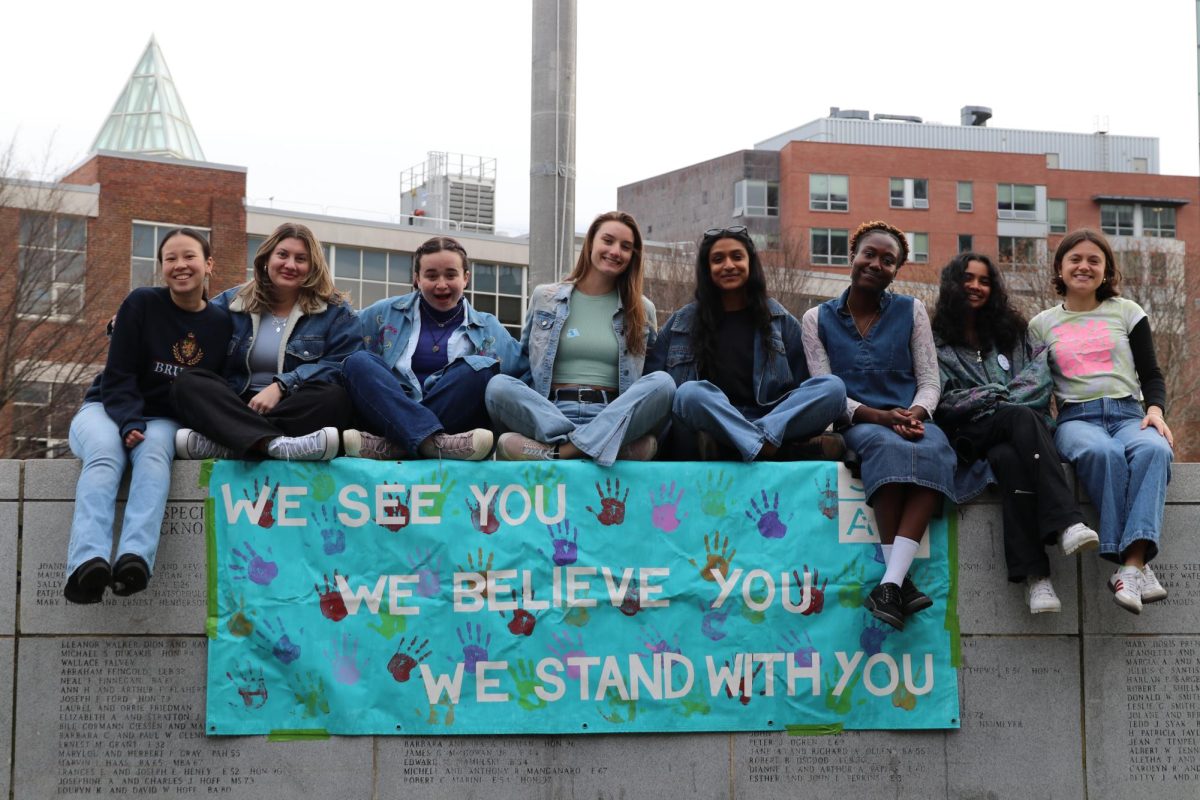Dennis Eckersley’s Hall of Fame baseball career was filled with impressive statistics, including 197 wins, 390 saves, 2,401 strikeouts and a 3.50 ERA.
But there was one more: a lingering alcohol problem, which was the subject of a discussion Eckersley led at Blackman Auditorium last week as part of Alcohol Awareness Week.
“I feel my past struggles with alcoholism are personal, but when they asked me to speak, I felt that I had to,” Eckersley said in his introduction. “If I can help one person here tonight, then it’s been worth it.”
To discuss both his successes on the field and his troubles off, Eckersley described each season and mixed it with recollection of his drinking problem, which began in 1972 when he was 17 years old.
Eckersley gave plenty of history about his own struggles with drinking, during years such as 1983 and 1986 when his on-field performance declined, and 1978 and 1984, when he was traded. Eckersley wasn’t the only one in his family with a drinking problem. His older brother began drinking in his teens and was living on the streets in 1983 and arrested for attempted murder in 1989.
“I had been hearing my family saying he was an alcoholic. I saw him in spring training in 1983, and he was a complete mess,” Eckersley said. “Purple face, sleeping outdoors. He was a hobo.”
“‘Man, I’m not that bad’, I thought. But an alcoholic doesn’t need to be that bad,” he said.
Eckersley mentioned how another instance of family intervention in 1986 helped him finally beat the alcohol habit that defeated his brother, when his wife and daughter showed him a videotape of himself drunk the night before.
“I was blown away. If you ever see yourself in that state of mind, it’s the ugliest thing you’ve ever seen,” he said. “My daughter said she didn’t even know her dad. That got me to the core.”
“I started rehab in 1987, and I started getting better,” he said. “I started liking myself again.”
Freshman pharmacy major Kendrick Murphy said the style of the speech helped convey the former pitcher’s message effectively.
“It was cool to hear him talk and be honest,” Murphy said. “Everyone thinks of him as a great, amazing baseball player, but he really let us know about his personal life.”
Speaking after the event, Eckersley talked about why he developed this style.
“This is just planting the seeds,” he said. “You can’t go in and just hit people over the head with this. It’s not an AA meeting.”
Matthew Chase, a freshman biochemistry major, was affected by the way Eckersley drew his family into his message.
“He really showed how one moral choice can be the difference between him and his brother,” he said. “I could understand where he was coming from with his brother, because I’ve had similar situations in my family. I felt I could relate.”
Though his alcohol struggles were the backbone of the speech, Eckersley filled his presentation with the anecdotes one would expect from a Hall of Fame career, including a detailed description of one of his few on-field mistakes: The home run that an injured Kirk Gibson hit off of him to win game one of the 1988 World Series, and help the Dodgers sweep his Oakland Athletics.
Murphy said one part stood out to him in particular.
“The Gibson story was my favorite part,” Murphy said. “That’s one of the most famous moments in baseball, and to hear the pitcher who gave it up laughing and joking was really neat. He’s a funny guy.”
Vice President for Student Affairs Ed Klotzbier said adding Eckersley to the lineup was a big part of Alcohol Awareness Week.
“We were trying to figure out how to put together a solid week, with a good series of events,” Klotzbier said. “We were able to get someone of that caliber, who’s a local celebrity, and who students can relate to.”
His career finished with a closing stint with the Boston Red Sox in 1998, and in 2003 the man who starred as both a starter and a closer was elected to the Hall of Fame.
“I just like to think of myself as a pitcher,” Eckersley said afterward. “People think of me more as a closer, because that’s where I had most success, but I like to think it was the uniqueness of my career [that] got me in.”
When he got the call for Cooperstown, Eckersley was told that “his life had changed forever,” which he doesn’t believe.
“My life changed forever back in January of 1987, when I started rehab,” he said. “I’ll never be the same again.”














